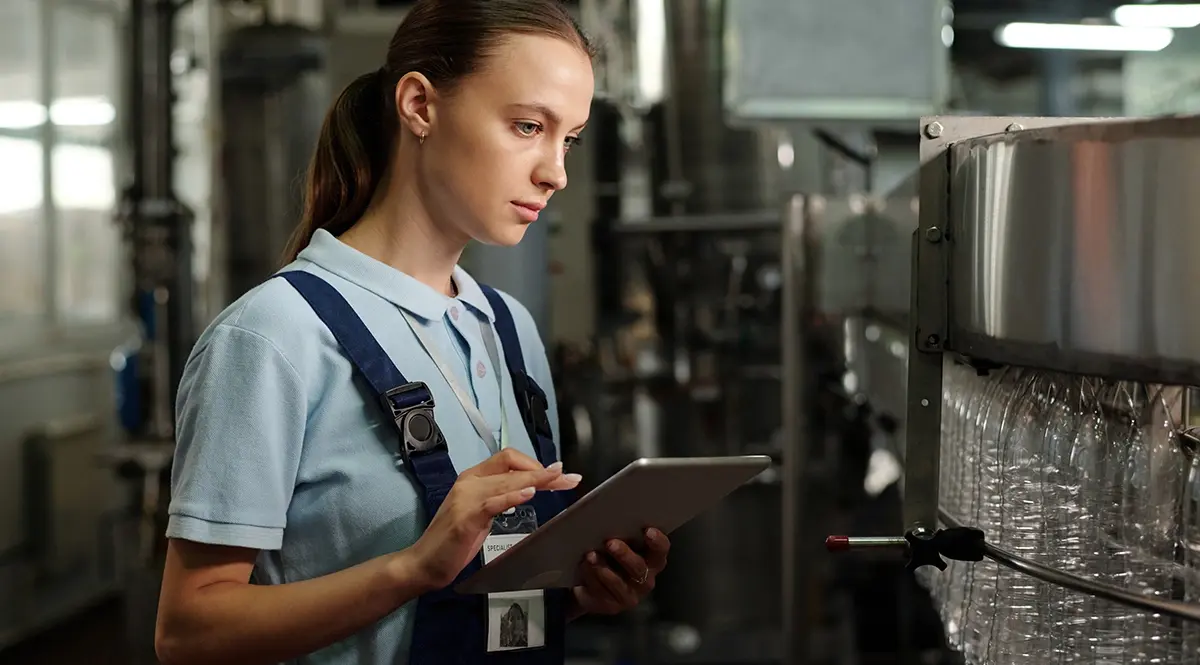Why Self-Inspections are the Future of Quality Management

As global disruptions become more frequent, organizations are faced with increasing uncertainties. Dealing with these uncertainties — from pandemics to conflict to material shortages — means building flexibility and the power to respond rapidly.
To meet these challenges, most brands and retailers turned toward self-inspections.
What are self-inspections?
A self-inspection program helps brands and retailers define the quality standards for suppliers and factories. It’s designed to automate inspection bookings and scheduling and standardize quality inspections, including fabric inspections, inline inspections, during-production inspections, final random inspections, and distribution center inspections. Self-inspections allow companies to monitor supplier performance and ensure that products meet their standards for quality, specifications, and safety.
Vera Bradley, who rewards consistent, high-quality suppliers with the ability to perform self-inspections, reports that self-inspections have created better working relationships and end-to-end collaboration.
Other major companies like Yunus Textile Mills find that self-inspections have led to significant cost savings, while Interloop claims that self-inspections with Inspectorio have allowed them to become more proactive. Barco Uniforms notes that self-inspections empower all of their factories and inspectors to work to Barco’s standards instead of their own.
The new gold standard
Self-inspections have become essential for quality management. By authorizing your on-site teams to carry out self-inspections, you obtain a crystal-clear and comprehensive grasp of your suppliers’ activities. When you’re aware of which suppliers need improvement, you can allocate resources with precision while allowing high performers to conduct self-inspections. This dramatically reduces overall costs.
Below, we look at why self-inspections are the way forward in the quality control industry.
Why are self-inspections the future?
1. Save money
Self-inspections cost significantly less than third-party inspections.
The use of digital self-inspections is associated with between 40% and 221% return on investment (ROI). Considering that the average cost of a third-party inspection in Asia is around $240 per inspector per day, these savings alone can improve a company’s bottom line.
With them comes greater efficiency: auto-generated inspection reports, a dramatic decrease in manual work and Excel sheets, and a reduced need to send your company’s inspectors to different factories around the world. When you know where the risk lies, you can send inspectors only where their presence will truly help.
2. You can better allocate your resources
A digital self-inspection platform lets you know which factories are most at risk. Performance analytics assess which factories are trustworthy and low-risk, empowering you to rapidly scale your self-inspection program across your supply chain.
All data collected is automatically consolidated, making the decision process seamless. This allows you to allocate resources exactly where they’re needed: helping high-risk factories improve their performance and giving low-risk factories greater autonomy.
3. Self-inspections enable predictive quality
Powerful predictive analytics help you decrease the number of repeat occurrences for the same defects. It can also point out areas of high risk in your supply chain, helping you become aware of issues that should be investigated. This maximizes efficiency because you don’t have to go hunting for problems; instead, you can know where the risk lies and solve the issues there.
4. You can empower suppliers and factories
Armed with the same validated information about recurring mistakes, you and your factories can build a better relationship in which they gain more independence over quality management as their performance improves. This lets you reward your best-performing suppliers with greater self-management without sacrificing oversight.
5. Standardize everything
The days of each factory or inspector working to their own specifications are over. Institute standardized inspection processes to help your suppliers maximize productivity, putting everyone on the same page across your global supply chain.
By standardizing the self-inspection process, you also collect more frequent and higher-resolution data than with third-party inspections — and you can objectively compare it. This is another contributor to higher returns for both vendors and brands and retailers.
6. Better data = better performance management
When you use a digital platform to perform self-inspections, you can view the real-time performance data of all of your factories. This gives you better data management and self-inspection analysis, both of which provide a radical degree of visibility into problem areas.
7. You can stop policing and start collaborating
By empowering your business partners with accountability, you create a culture of collaboration instead of policing. Automated corrective and preventive actions (CAPA) drive improvements with each production run, fixing problems at the source and saving resources.
8. Production continues even through major disruptions
Resilience is everything in today’s world, where substantial disruptions are likely to occur at least every 3.7 years. When you reduce dependence on third-party inspectors, you reduce your supply chain’s vulnerability to such disruptions.
9. Easier than ever to implement
With digital solutions like Inspectorio, it is easier than ever to build resilience in your supply chain with self-inspections. Gain complete visibility over all remote audits and take advantage of the ability to scale upwards without limit.
In the past, implementing a self-inspection program would’ve been a challenge for many brands, retailers, and manufacturers. The availability of new technology in the market makes it easier to roll out and monitor self-inspections to ensure their integrity.
How Inspectorio can help you
Implementing self-inspections can only happen with the right tools.
Inspectorio puts tremendous power in your hands: the power of real-time monitoring, continuous data aggregation, AI-driven autonomous analytics, full-scale standardization, and centralized communication.
By digitizing the inspection process, you can not only track issues but can identify potential problems before they happen — a critical capability for long-term improvements.
Contact us to learn how our platform can transform your supply chain in less time than ever before.




